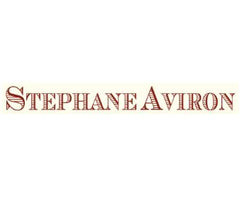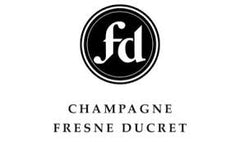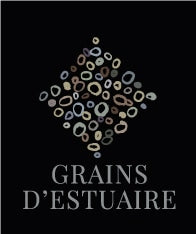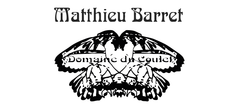France is one of the largest wine producers in the world, and arguably, one of the most significant, with a wine-making history that dates back to the Roman times. Taste through the different wine regions of France, from Bordeaux, Burgundy, Champagne, to Languedoc-Roussillon, Loire Valley, Rhône, Provence and beyond. Each region is known for different grape varieties, a unique growing environment, and their special wine production philosophy.
52 products
- Red Wine
- Grenache, Mourvèdre / Monastrell, Samso / Carignan, Syrah
- Sustainable, Vegan-Friendly
- Dry
- Medium Bodied
- 750ml
- 14.5% alc./vol
About the Winery
Domaine Andre Aubert
At the very heart of the Rhône Valley, at the northerly tip of the Southern Rhône, lie the vineyards of Grignan-Les-Adhémar. The chances are you haven’t heard the name before, few people have, but the wines are worth seeking out. It’s not a new wine region – vines have been planted here since around 500BC but it is a new name (formerly known as Côteaux-du-Tricastin). Domaine André Aubert, has been formed over decades and today comprises of more than 280 hectares spread from north to south of the prestigious Southern Rhone Valley on the appellations Côtes du Rhône, Côtes du Rhône villages, Visan, and Grignan-les-Adhémar.
Press Reviews
Wine Align
90 points - David Lawrason
This is new appellation (formerly Coteaux de Triscatin) is the northernmost in the southern Rhone. It uses the typical southern Rhone varieties, but none can be more than 80% of the blend. This is a quite elegant, well structured, mid-weight red with some stony minerality, lifted pepper and savoury notes. Not as opulently fruity and rich as many peers, yet very tidy and balanced. The length is very good to excellent. Tasted March 2022
- Rosé Wine
- Grenache, Syrah
- Organic, Vegan-Friendly
- Dry
- Medium Bodied
- 750ml
- 13.5% alc./vol
About the Winery
Mas Carlot

Mas Carlot is situated in the south of the Rhône Valley, extending across 76 hectares of pebbly land southeast of Nîmes. Originally a 17th century farm, this beautiful estate was resurrected in the 1960's by the Blanc family—it is currently run Cyril Mares of the neighbouring and equally reputable property, Mas Bressades.
The appellation of Costières de Nîmes used to be considered part of eastern Languedoc but the climate, soil, topography and wine are far closer to those just over the river in the Southern Côtes du Rhône. It is now a region very much on the up and is widely recognized as a great source of excellent value wine.
Press Reviews
Robert Parker
91 points
Mas Carlot's 2021 Costieres de Nimes Rose Generations is a terrific blend of 55% Grenache, 35% Syrah and 10% Mourvèdre. Offering up generous aromas of strawberry, watermelon and lime, it's medium-bodied, plump and expansive on the palate. Made in a traditional style, with more color and extraction than the skinnier, more citrusy Provence wannabes, this is a lovely wine, with touches of silk and spice on the finish, not just citrus.
- Sparkling Wine
- Chardonnay
- Sustainable, Vegan-Friendly
- Dry
- Medium Bodied
- 750ml
- 12.00% alc./vol
About the Winery
Domaine Baud Père et Fils

The history of Domaine Baud dates back to 1742, and it wasn't until 1950 when René Baud, the 7th generation, rebuilt the vineyard which had suffered from the phylloxera crisis and two World Wars.
Starting with only 4 hectares, the vineyard progressively expanded to 20 hectares with the help of successive generations. Now, managed by siblings Clémentine and Bastien, the 9th generation, the estate continues to flourish and grow, with a strong commitment to sustainable viticulture and preserving the traditions and style that makes the wines of the Jura so unique and incredible.
The estate achieved the Terra Vitis certification in 2014 for its eco-friendly work and environmental preservation.
Press Reviews
Wine Align
92 points - David Lawrason
This is a very tasty, rich, golden hued, well aged chardonnay-based sparkler with an involved nose of cashew, baked apple, nougat and honey. It is almost creamy in texture with fine mousse and very good acidity providing counterpoint. There is pleasant nutty bitterness on the finish; length is excellent.
91 points - Michael Godel
Varietal chardonnay that sees a year of lees aging with a dosage to reach the desired Brut. A richness and also dried herbal notes plus fennel that is offset by a creamy sweetness melting and melded through the pictorial texture of a wine so sharp and yet so soft. One imagines the Baud family being led by such humans and when a wine acts as an expression of they, well isn’t that the point in a wine like this? Drink 2022-2024. Tasted July 2022.
Baud’s Crémant is made in true Blanc de Blancs style, from 100 per cent chardonnay and though faintly if beautifully oxidative, the cuvée pulses with great energy. The scents of fraying ginger batons, scraped orange skin and baking almond cookies are all a treat for the olfactory. Just enough but not too much sweetness fleshes the the body to get down to density in mouthfeel but never abandons its airy character. A terrific Champagne alternative that was disgorged in October of 2017. Drink 2018-2022. Tasted April 2018.
Treve Ring
91 points
This family estate dates back to 1742, but it wasn't until 1950 when René Baud, 7th generation, rebuilt the vineyards, expanding from 4 hectares into 20 hectares over the years. Today the estate is managed by siblings Clémentine and Bastien, 9th generation. This sustainably farmed chardonnay is rooted in the Jura's marl and limestone soils and was fermented in stainless before a year on lees before disgorgement and release. Green apple, white florals, oyster shells, meadow herbs, meringue run the bright, sleek palate, with a bed of creamy lees. There's a lovely streaming anise note that leads to a lengthy finish. Drinking beautifully now, but will hold over the next couple years easy.
- Red Wine
- Gamay
- Biodynamic, Sustainable, Vegan-Friendly, Volcanic
- Dry
- Medium Bodied
- 750ml
- 13% alc./vol
About the Winery
Stéphane Aviron

Stéphane Aviron can be considered a pioneer in his approach to winemaking in Beaujolais, however he would just tell you that he’s simply returning to the traditional practices that have always made fantastic Gamay wines. Sustainable viticulture, extremely old vines and classic Burgundian techniques. He focuses on the Beaujolais village crus, all but forgotten gems of vineyards when the nouveau craze took over, which are the best sites for unique, expressive and terroir driven wines. All of the fruit is sourced from old vines (40+ years), so seeing Vieilles Vignes on the label is a rite of passage, not a privilege. Authenticity and a distinctly Beaujolais style of winemaking is what sets Stéphane apart from the rest.
Press Reviews
Wine Align
93 points - David Lawrason
Chenas is one of the smallest appellations of Beaujolais, situated astride more famous Fleurie. Both villages tend to make gamays with both richness and elegance. This sports a ripe nose of cherry/strawberry jam, peony and subtle pepper. It is medium bodied, smooth, firm and refined with gentle tannin. And the length is excellent. Very easy to enjoy now and should hold through 2028. Tasted June 2022
92 points - Megha Jandhyala
This is a fetching gamay with buoyant fruit notes of cherries and raspberries accompanied by aromas of candied violets, rosemary, and snapped twigs. The palate echoes these flavours with subtle notes of cured meat joining the chorus. Tannins are satin smooth and acids are tart. Length is excellent with a delightful fruity finale. Best 2022-2027. Tasted June 2022 by Critic Understudy Megha Jandhyala.
91 points - John Szabo, MS
This is a pleasantly twiggy-herbal-stemmy expression of Chenas with plenty of joyful fruit underpinning the ensemble. I like the fleshy dark cherry fruit on the palate, the silky-firm tannins, and the excellent length in the category. A superior cru; drink or hold late into the decade. Tasted June 2022.
91 points - Michael Godel
Chénas by Aviron is the cru that takes what the Villages offers and simply gives more. By home and vineyard the extrapolation and extension is natural, seamless and duly noted, from dancing fruit, happy palate and now, something viably more. Salumi and wet stone, a modicum of structure, violets in perfume and furthered texture. A positive thickening that stays with the palate, lingers and gracefully moves on. This is gamay to pour for people ready to get it and get at it. Drink 2022-2026. Tasted June 2022.
90 points - Sara d'Amato
An intriguing mix of ripe and jammy along with stemmy and herbal from the warm 2020 vintage. Juicy on the palate with flavours of cherry, bramble, wet leaf and a hint of carbonic. Mouthfilling and fleshy overall with plush red fruit on the finish of very good length. Tasted June 2022.
- White Wine
- Chardonnay
- Sustainable, Vegan-Friendly
- Dry
- Medium Bodied
- 750ml
- 12.5% alc./vol
About the Winery
Domaine de Mauperthuis

A family estate created by Marie-Noëlle & Laurent Ternynck, Domaine de Mauperthuis is located in Prehy, near the town of Chablis. Their wines express the terroir of this amazing region and the vineyards are currently undergoing the transition to organic. Domaine de Mauperthuis covers around twenty hectares of vineyards around Chablis. The estate, in the Burgundy appellation, is planted in Chardonnay, Pinot Noir, Sauvignon and César, on land facing south, benefiting from exceptional sunshine.
Press Reviews
Wine Align
91 points - David Lawrason
This is a quite rich, slightly oxidative style of unoaked chardonnay with pale golden colour and a ripe nose of baked apple. Peach pie, toasty lees and vague nuttiness. It is medium weight, smooth and almost creamy with fine acidity and mineral underpinning. The length is excellent. Tasted June 2022
- Sparkling Wine
- Chardonnay, Pinot Noir
- Sustainable, Vegan-Friendly
- Medium Bodied
- 750ml
- 12% alc./vol
About the Winery
Champagne Fresne Ducret

Fresne-Ducret is rich in family history and has been rooted in the premier cru village of Villedommange since the mid 1800s. Originally growing grapes for the big champagne houses, it wasn’t until the end of the second world war that the family decided to make their own wine. The tradition carries on today with Pierre Fresne and his wife Daniella (an Oakville ex-pat). Their philosophy is to produce wines that best exemplify the terroir of Villedommange, and they do this with sustainability in mind.
In 2014, Pierre Fresne embarked on a new adventure by creating a limited series of champagnes based on his desire for experimentation. Since then, he has produced one or two of these wines each year. Each are unique, according to his wishes and the profile of the vintage. This unique collection is called Arquémie, the term for alchemy in the Middle Ages. In 2018 Pierre began converting the vineyards to organic viticulture, and 2021 will be their first organic certified vintage.
Press Reviews
Wine Align
96 points - David Lawrason
This has a very intriguing, generous nose of macaroon (coconut), straw, dried apple, toast and almond/hazelnut. Also a lovely sense of sweet nut fudge. It is medium bodied with fulsome flavour, riveting acidity and all kinds of Champagne minerality. Great focus and length here. Wow! Tasted October 2020
93 points - John Szabo
Fresne Ducret's latest release of this premier cru "Chemin du Chemin champagne is a characteristically smoky and savoury, toasty and biscuity, mature champagne in the English style, balanced and savoury. I really like the developed, mature profile here, the great length. This is very good champagne ready to go. Tasted October 2020.
93 points - Michael Godel
When richness, yeasty and warm toasted brioche get together in Champagne the effect is comforting and potentially hypnotizing. From the Premier Cru village of Villedommange dating back to the mid 1800s, the pedigree is noted and the 48 months of lees aging a coup for creating both a creamy and a revitalizing Champagne. There is an oxidative aspect here and it's effectualness is one that imagines exotic spice cupboards, masala mixes and gingery tisanes. Quite the exotic bubble, lightly frothy, elegantly styled, complex and fine. Drink 2020-2026. Tasted October 2020.
Wine Enthusiast
94 points
This Champagne shows some fine maturity. A blend based on the 2014 vintage, it now has toastiness while keeping intense freshness. Acidity and touches of minerality come through the spiciness. Drink now.
- Red Wine
- Merlot
- Natural, Sustainable, Vegan-Friendly
- Dry
- Medium Bodied
- 750ml
About the Winery
Grains d'Estuaire

Julien Bonneau, (Château Haut Grelot in the Blayais), and his friend Alexandre Lavigne, restaurateur in Saint-Palais-sur-Mer, created in 2014 a range of wines, Grains d'Estuaire, from 'a 10 ha vineyard located in Saint-Bonnet-sur-Gironde, in the south of Charente-Maritime.
- White Wine
- Chardonnay
- Sustainable, Vegan-Friendly
- Dry
- Residual Sugar: 2 g/l
- Medium Bodied
- 750ml
- 13.00% alc./vol
About the Winery
Domaine Baud Père et Fils

The history of Domaine Baud dates back to 1742, and it wasn't until 1950 when René Baud, the 7th generation, rebuilt the vineyard which had suffered from the phylloxera crisis and two World Wars.
Starting with only 4 hectares, the vineyard progressively expanded to 20 hectares with the help of successive generations. Now, managed by siblings Clémentine and Bastien, the 9th generation, the estate continues to flourish and grow, with a strong commitment to sustainable viticulture and preserving the traditions and style that makes the wines of the Jura so unique and incredible.
The estate achieved the Terra Vitis certification in 2014 for its eco-friendly work and environmental preservation.
Press Reviews
Wine Anorak
94 points - Jamie Goode
Powerful, lively and spicy with concentrated tangy citrus and pear fruit with some saline notes and tangy apple and lemon on the finish. Lovely intensity here with some crystalline citrus fruit.
Wine Align
93 points - David Lawrason
This is not your everyday chardonnay! In the Jura region of east-central France in the lower foothills of the Alps, there is tradition of oxidative winemaking, some under a layer of flor, as occurs in some Spanish sherry. As a result of the advance maturation this pours medium gold. The nose is dominated by classic hazelnut, honey, barley sugar sourdough and anise, around the ripe tropical fruit. It is medium weight, very smooth, well balanced and focused, with excellent length. More lithe lemon notes enliven the finish. There is a touch of tannin. Tasted December 2022.
91 points - John Szabo, MS
A pure chardonnay made in the traditional, oxidative Jura style under flor, not unlike fino sherry, but here the oxidation is more pronounced. Expect bruised apple and cold Orange Pekoe tea, cold wheat toast with honey, lemon pith and zest, and much more in an unusual but complex expression. The palate is mid-weight, showing more fruit and less oxidative qualities than the nose, succulent acids, and good to very good length. I must say, I like the salinity and savoury aspects, the lingering flavours and authentic but unimpeachable winemaking. There's fantasy here; be sure to decant before serving; best now-2026. Tasted December 2022.
91 points - Michael Godel
Clémentine Baud took over the family estate with her brother six years ago. The first father to daughter transition and with many to follow. The estate dates back to 1742, started by Jean-François. They farm 25 hectares, Clémentine’s father started with five and grew to 19 hectares when he retired. Picking for Sparkling now seems to happen in August, save for the difficult 2021 vintage. In 2017 70 per cent of the harvest was lost to the frosts, 50 in 2019 and 80 in 2021. "We have over 40 old varieties in the Jura, important for diversity, including those not allowed under the rules of the AOC," tells Clém. The fruit for Cuvée Flor is grown at a latitude of 46.73 North and though very much a cool climate place for chardonnay the threats of warmer winters and seasonal frosts has wreaked havoc over the past 10 years. A chardonnay of remarkable lustre, concentration and purity, worked by way of oxidative aging, low alcohol expectation starting at 12 and finishing no higher than 14 to 14.5. A floral chardonnay, not one related to yeast and surely a pretty in Jura wine. From the younger vines, phenolic and hinting towards though remaining clear of emerging boozy. Filled with flavour, hazelnut and praline, peach and yellow plum. A world of its own. Drink 2022-2025. Tasted July 2022.
- Red Wine
- Syrah
- Biodynamic, Natural, Organic, Vegan-Friendly
- Dry
- Medium Bodied
- 750ml
- 12.5% alc./vol
About the Winery
Domaine du Coulet - Matthieu Barret

Matthieu Barret was born in Aix-en-Provence in 1975 and studied viticulture in Beaune.
He is the 7th generation vigneron and joined his grandfather in Cornas in 1997. Previously, his family had only been farming and selling grapes. He practices biodynamic viticulture, obtaining very low yields (23 hl/ha) and extraordinary quality. He describes his wines as being 100% grape, with a very low sulphite addition. His wines are extremely clean, and, true to the Cornas character. Domaine du Coulet was founded by Matthieu Barret’s grandfather after WWII, and over the years has supplied grapes to some of the best known producers in the Northern Rhône, including Chapoutier and Delas. While his father eschewed the agrarian lifestyle, opting instead for a career in international business, Matthieu knew early on that he wanted to be a vigneron. In 1998 at the age of only 23, he took over the family’s 25 acres of well-situated vines on the terraced hillsides of Cornas.
From the beginning, Matthieu has employed natural, organic practices and by 2002 (his second year of production) the domaine received its biodynamic certification. With each vintage, Matthieu has gained a better understanding of his vine parcels and through thoughtful experimentation, he now turns out a remarkable selection of Cornas wines that express the unique nuances of each micro-terroir. No new oak, no racking, minimal use of sulfur and no fining or filtration. Pure, sexy Syrah.
- Sweet Wine
- Gros Manseng, Petit Manseng
- Natural, Organic, Vegan-Friendly
- Medium Bodied
- 750ml
- 12.00% alc./vol
About the Winery
Clos Lapeyre

This family farm was traditionally dedicated to mixed farming with livestock, small fruits and grapes which were taken to the local cooperative. From 1985 onwards, the estate was turned over exclusively to viticulture when Jean-Bernard Larrieu gave birth to Clos Lapeyre.
Clos Lapeyre is a 12 ha domain owned by the Larrieu family, in Jurançon, Southwest France. It is situated south of Pau, nestling on steep slopes facing the Pyrenees. The vineyards are planted on terraces at an altitude of 250 m. Jean-Bernard Larrieu makes the wines, and his aim is produce wines that express the specificity of the grape varieties and the soils (pebbly clay/limestone and silex). The wines are certified Organic.





























